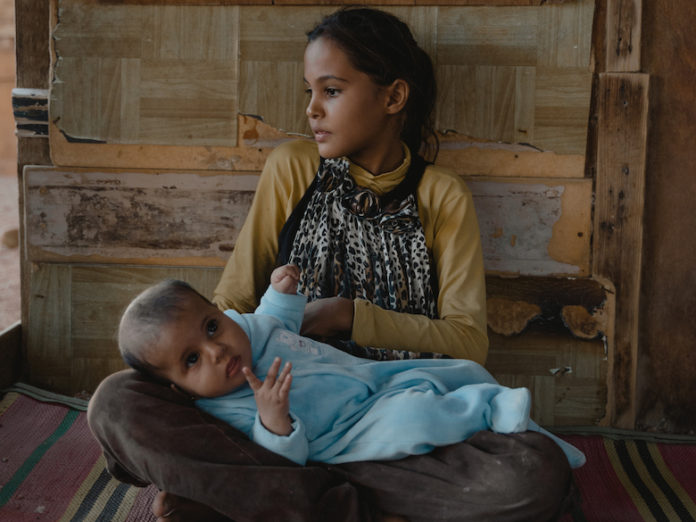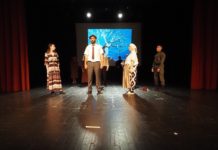In 2016, UNICEF conducted research to empirically assess child marriages in twelve countries in Europe, Africa, Asia, Latin America, and the Caribbean. The research was based on publicly available demographic data and health surveys, taking into account the multiple indicators related to child marriages, i.e. socio-economic status, education, household income, customs, and religious beliefs. This research is one of the few that included child marriages in European countries, focusing on Serbia, showing that the percentage of child marriages in Roma communities in European countries is relatively high compared to the total number of marriages. In Serbia, 50.5 percent of Roma women in the survey, between the ages of 20 and 24 stated that they got married before the age of 18, corresponding to only 5 percent of women in the general population. In Croatia, according to data published in the 2020 book Uključivanje Roma u hrvatsko društvo – žene, djeca i mladi (The Inclusion of Roma in Croatian Society – Women, Children, and Youth), 50 percent of Roma women who have children gave birth to their first child as a minor, of which 17 percent were younger than 16.
Young couples’ marriages are arranged mostly by their parents, whose decision is influenced by various factors at the community level, i.e. the position and reputation of the family from which the future spouses come, especially the bride, the approval or disapproval of the community regarding the girl’s, as well as her virginity. It is precisely the fear of premarital sex that represents one of the pervasive reasons for marrying at an earlier age, as a way of preventing it. Consequently, entering into a marriage without knowing what this union entails, carries with it, among other things, complete ignorance about sexual life and reproductive health, as well as any knowledge of women’s rights.
In my community, it is customary for a girl to be a virgin. This custom destroyed my family, although everyone will tell you that it was me that destroyed it. What hurt me the most was that no one believed me. They didn’t believe me when I told the truth, they only believed what they wanted to hear, says Bojana. One day I will return to the village where I grew up, but I will be successful. Maybe I will be a policewoman or I will finish some other school, or maybe they will talk about me on television as a girl who succeeded. My former neighbors will only look at me and won’t be able to believe that I achieved this, Bojana begins her story. Today she is 16 years old, and she went through hell by the time she was fourteen. She was already married at the age of 12, and that was when the question of her virginity arose. My boyfriend never wanted to admit that he was my first. I was in love with him, I wanted to escape from the community in which I lived and be happy. I thought that I would be fine with him because it was our mutual decision to be together and no one would spoil our happiness. But he and his family took me back home and claimed that he was not my first boyfriend. The elders questioned me, asked me to admit who my first partner was, and if I won’t tell, then it had to be my dad, they concluded. I said it wasn’t like that, I repeated again and again, but at one point I had to confirm what they were telling me. My dad said in front of everyone that this was not true and that he never touched me. The elders concluded that if he is telling the truth nothing will happen, but if he lies then some tragedy will strike us soon. Two weeks passed, and my dad killed my mom.
Our house was full of blood. We children thought that mom would survive and we waited for her. In the morning, the police came and took Dad away, and we found out that our mom had died. I couldn’t believe it was true, I thought they were lying to us. All the neighbors gathered around our house and shouted that our mom had died. They came to the house and said that it was my fault, that I caused it.
After that, the family was separated. Bojana’s three younger sisters have been taken into foster care. Her younger brother is sick and permanently resides in Zagreb for treatment, and the other one, who is of age, has remained in the settlement. Two older sisters are married and live with their families. Bojana has been taken into foster care, with two other sisters by Elvis Kralj’s family, which has been fostering Roma children for fourteen years and has fostered fifteen of them so far. Kralj is a teaching assistant for Roma children, deputy commander in DVD Totovec, and member of the Assembly of the Međimurje County. Bojana describes him as the best man in the world. Now that she lives with his family, she says it’s a very different life from the one she, her sisters, and her brothers had with their parents. She remembers how her parents used to drink, her father used to hit her mother, and they never talked to her or her sisters the way Elvis talks to them and motivates them. Everything Bojana’s parents did was wrong. There is no justification for their actions. They should have never put themselves and their children in such a situation, says Elvis Kralj. It took me some time to gain her trust and to at least try to explain to her that she is just a child and that no matter what people say, no one has the right to put any blame on a child. That adults are to blame for their actions and consequences.
Together, they went through an extremely difficult period with Bojana’s numerous post-traumatic symptoms: At first, I was very sad because they separated us children, and I missed my youngest sister the most. I was constantly thinking about everything that had happened, especially my mother. I cried quite a lot, and then the panic attacks started. I couldn’t be alone in my room at night, I couldn’t sleep, I couldn’t concentrate at school, says Bojana and adds that Elvis Kralj was the first person who listened to her and said: I believe you. With his support, but also with the professional help they turned to, Bojana is slowly recovering mentally. She finished the eighth grade with very good results, and then enrolled in high school to become a traffic technician because that was the closest thing to her desire to become a police officer. She finished her second year of high school and is thinking about enrolling in the police academy or another college after graduation.
I hope that I am on the right path to get these three girls, the three sisters who are with me, back on their feet, says Kralj. I repeat to them that they are still children and should behave like children and enjoy their childhood. Tears are not a rare site and we all know how to cry together, for example when we watched Vedrana Balog’s story, which was broadcast as part of the Prizma show in 2020 on Croatian Radiotelevision. At the age of six, Vedrana was taken from her family and placed in residential child care. She was placed into a foster care only a few months before turning 18. After finishing high school, she enrolled at the Faculty of Law in Osijek. I told them: ‘Girls, fight, be like Vedrana, and then one day we will cry tears of joy because of your success, and I will be able to say that I helped you too.’
In addition to helping children with their regular school activities, Elvis Kralj also participated in the implementation of many educational programs for children and young people, including the project ”Budi muško” (“Be a man”) within the regional campaign against violence among young people ”Act like a human” (“Reagiraj ljudski”), which was implemented by the organization Status M. Both girls and boys were involved in the project, covering topics such as sexual violence, sexual and reproductive health, and family planning, says Kralj. Aware that women go through hell because of customs and the virginity ideology, I adapted the program and the manual for the education of Roma students explaining everything close to them in their everyday life. That’s how I introduced them to a scientific theory according to which it is not necessary that every woman bleeds during the first sexual intercourse and that this does not have to be the case at all for every fourth woman. Does that then mean that every fourth girl must immediately remove herself from the Roma community in order so that she, her family and the family she came to as a daughter-in-law wouldn’t be judged, I asked them rhetorically and explained to them that they must work for the voice of Roma women to be heard more strongly because there is too much suffering and pain in their lives and too little respect for their rights.
Tradition teaches us about our origin and identity, our roles in the community, and our responsibility for the heritage we pass on to the next generation. But the problem arises if we just blindly follow traditions and customs without asking what is good and what is bad for an individual and how the tradition and customs are in line with the dynamics of social changes and values. Questioning is necessary regardless of the fear of consequences and community resistance because without it neither the individual nor the community can evolve.
One of those Roma women who fought for her rights and by her example has already become a role model for many girls is Lea Oršuš, a second-year student of social work and an activist in the Association of Roma in the Republic of Croatia “KALI SARA”. She is one of the members of the Organizing Committee of the Congress of Young Romani Women and Roma, which took place in Croatia for the third year in a row and devotes a large part of her activist work to working with younger people and her peers, especially girls. She is very familiar with tradition and customs, moreover, they were part of her daily upbringing, and she is strongly opposed to the fact that what brings the downfall of young people, what causes harm to an individual or the community, and what ruins lives is called Roma tradition. He strongly condemns individuals whose twisted and unacceptable behavior casts a negative light on the entire Roma community.
In addition to helping children follow regular teaching activities, Elvis Kralj also participated in the implementation of many educational programs for children and young people, including the project “Be a man” within the regional campaign against violence among young people “Reagiraj ljudski”, which was implemented by the organization Status M. Both girls and boys were involved in the project, and sexual violence, sexual and reproductive health and family planning were some of the topics, says Kralj. Aware that women go through hell because of customs and the cult of innocence, I adapted the program and the manual to the education of Roma students in terms of everything close to them in their everyday life. That’s how I told them about the scientific theory according to which it is not necessary that every woman bleeds during the first sexual intercourse and that this does not have to be the case at all for every fourth woman. Would that then mean that every fourth girl must immediately remove herself from the Roma community in order not to judge her, her family, and the family she came to as a daughter-in-law, I asked them rhetorically and explained to them that they must advocate for the voice of Roma women to be heard more strongly because there is too much suffering and pain in their lives and too little respect for their rights.












